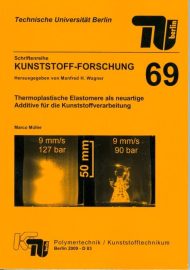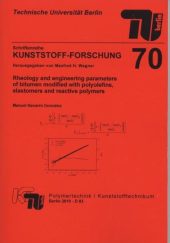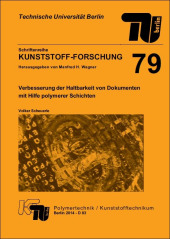Thermoplastische Elastomere als neuartige Additive für die Kunststoffverarbeitung

Size: 161 pages
Format: 14,8 x 21,0 cm
Format: 14,8 x 21,0 cm
Reihe: Schriftenreihe Kunststoff-Forschung ; 69
ISBN 978-3-7983-2172-4
5,00 €
The present work discusses the effectiveness of thermoplastic elastomers as polymer processing aids (PPA) that are used to delay melt flow instabilities. The aim is to postpone the so-called sharkskin effect to higher processing velocities and to improve productivity in polymer processing. The PPAs investigated are compared with commonly used fluoropolymer-based PPAs that are well established as lubricants in polymer processing but whose environmental compatibility is under discussion. Several polymer processing techniques like injection moulding, extrusion and blown-film production are used. A PE-LLD type with low melt-flow index is chosen as reference material. A variety of thermoplastic elastomers based on silicons as well as on urethanes are investigated.
A thereotical model is presented for the determination of the free surface energy of the materials that take an active part in the process in order to predict the applicability as an effective additive. Therefore a parameter is defined to describe the mutual affinity of the materials. Changes in the rheological behaviour of the polymer melt caused by adding the additives is analyzed by use of rheometric methods (oscillating and capillar rheometry).
Thereby the viscosity as well as the relative elasticity (defined as the inverse loss factor) of the materials is considered. Furthermore the Mooney method is used to determine the slip velocities of the polymer melt flowing through a capillary die. With these results a classification of the materials into elastic lubricants and viscous adhesives is made. Finally the influence of additives on other material characteristics (e.g. surface energy, UV persistence, mechanical and optical properties) is determined.



